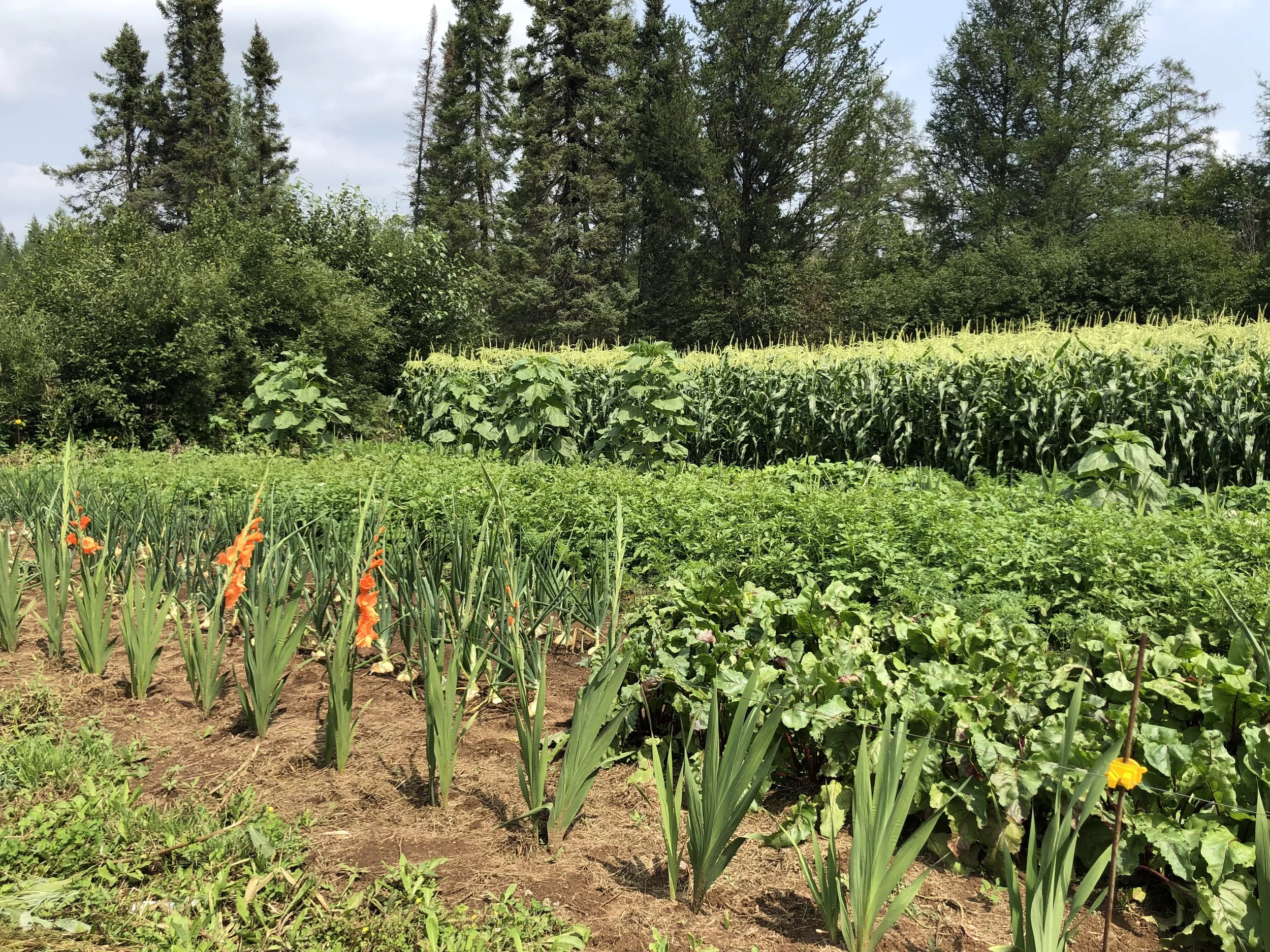This is column #99 and I’ll be retiring from this Grown on the Range column at #100. I’ve tried to write the stories of as many farmers/growers as I could find on the Range over these past few years and lately, I’ve been thinking about retiring farmers. There’s lots being written about the average age of farmers in the U.S. these days—57.5—and about how we’re going to maintain food production if younger folks aren’t entering farming at the same or better rate than retiring folks are leaving. Many retiring farmers don’t have a transition plan for passing on the farm to a family member because there is no family member who wants to take it on. In some of these cases, the land is sold to developers who offer the best price. Since 2002, the U.S. has lost forty million acres of farmland to development—commercial buildings, housing, other purposes. And with a growing global population, that’s the opposite of the way we need to go.
When I was growing up in Illinois, I spent summers on a farm run by my two great uncles who had no children. But there was a big difference—they rented their land from the guy across the road. When they retired and moved to town, someone else rented the land. It’s still under production today. Nearby, my sister’s in-laws retired from the farm they owned but remained involved in the farming until their health would no longer permit it. My nephew now farms that land. Luckily, there was a family member who wanted to farm. But that isn’t always the case. Young folks today who graduate with degrees in agriculture are often saddled with student debt to the extent that they can’t afford the huge investment in land and machinery.
That’s one reason some are proposing farm apprenticeships, perhaps at the high school or community college level. Young folks could learn the trade both academically and on-the-job without acquiring a huge student debt. And retiring farmers might find a good fit for passing the farm on through creative land leasing or long-term sale to an apprenticed farmer. There’s another glitch, though: most farms depend on at least one off-farm income for health and retirement benefits. Young farmers face the same needs. Imagine how a robust national health care program would change that dynamic!
One thing is for sure: with one-third of current farmers planning to retire in the next decade, we need powerful programs to assist with farm transition, both for retiring and for aspiring farmers. In Minnesota, the Department of Agriculture hosts a FARMLINK program to connect retiring farmers and new farmers, buyers and sellers, renters and landlords, and employers/employees online at https://www2.mda.state.mn.us/webapp/props4sale/ . Retiring farmers can create an account to list their farm for sale or rent or to hire an apprentice. There’s also help available in setting up a transition team. This spring, the University of Minnesota Extension is hosting three Multi-Generational Farm Transition Retreats with hands-on planning and discussion in Mankato, St. Cloud, and Crookston in February and March. The retreats run on Friday evening and Saturday. Check the website for details. These are coming up very soon!
Renewing the Countryside is another Minnesota organization offering help. They host the Farmland Access Hub at www.farmlandaccesshub.org . The program has a full staff of Farmland Navigators who are available to advocate for and work with farmers around land access and transition. The service is free. The hub also has a marketplace where available farms are listed. The Land Stewardship Project of Minnesota’s website offers a “Farm Transitions Toolkit” that is available online and consists of over 155 pages of tools, forms, and resources. The Toolkit was put together by the Land Stewardship Project with the Minnesota Institute for Sustainable Agriculture, the National Center for Appropriate Technology, and the Farmers’ Legal Action Group. http://landstewardshipproject.org/farmtransitionstoolkit
Land for Good, an East Coast organization, has also published a free, very helpful workbook “Farm Succession Planning: Where Do I Start?” https://landforgood.org/wp-content/uploads/LFG-Farm-Succession-Planning-Where-Do-I-Start-Workbook.pdf
I spent some time looking through research on retiring farmers as I was writing this, too. It’s probably accurate to say that farmers don’t retire in the same sense as other professionals. They have built up years of relationship with their land, they know every nook and cranny. They have formed networks of mutual help in the farm community, and they have acquired an enormous skill set known as “farm hacks” that only come from doing the work and solving problems with what’s on hand. We need to be careful that, in offering older farmers assistance with farm transitioning, we don’t hang them out to dry.
It seems like there should be a path for them to continue contributing their expertise, and their labor if desired, as long as they can. This might be a valuable resource for beginning farmers. We have a National Young Farmers Coalition https://www.youngfarmers.org/ and Duluth has a chapter—maybe there should be a National Old Farmers Coalition or something similar. They could form local chapters and be available with their wisdom and skills. The men and women who have spent their lives farming represent a resource we should honor and promote. I hope this either exists, or that one of you readers will take this idea and run with it!



